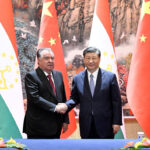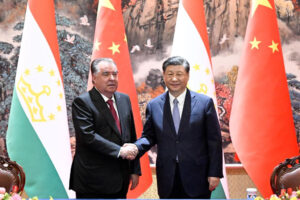Carrier Global’s move to buy heat-pump maker underscores concerns for Mittelstand companies
Staff at the Bäcker Müller café in the German village of Allendorf were among the first to hear that the main local employer might be sold to a US company, as night-shift workers for heat-pump maker Viessmann shared rumours on their way home. “At first they thought it was a joke. And the next day it all started — it exploded like a bomb,” said one waitress, referring to the frenzied media attention on Viessmann — and on Allendorf, most of whose 6,000 inhabitants work for the 107-year-old company.
The €12bn offer from Florida-based Carrier Global for the majority of the family-run business has hit a nerve in Germany, where anxiety over the country’s industrial future was already on the rise. The rare sale of a member of the Mittelstand — the private, midsized companies that form the bedrock of the German economy — would have inspired some soul searching at the best of times.
But now, amid heightening concerns that the US Inflation Reduction Act’s $369bn subsidy package will make German industry forgo investments at home, the deal has even prompted a review by Berlin to ensure that “the project serves our economy”. Carrier’s chief executive David Gitlin said scrutiny from the German government did not worry him.
“There’s a process where we have to explain our intentions, our desires,” he told the Financial Times. Once German government officials had spoken to the Viessmann family — including 34-year-old chief executive Max Viessmann, whom Gitlin first met at a dinner last year — “they will be extremely excited about this combination”, he added. It is not the first time Carrier has found itself at the centre of a media storm. In 2016, then US president-elect Donald Trump publicly intervened in the company’s plans to lay off 800 people at its plant in Indiana and move production to Mexico.
Carrier agreed to keep employing people in the Midwestern state in exchange for $7mn in state subsidies. Carrier has promised to respect Viessmann’s relationship with Germany, at least for a few years. The company’s headquarters must remain in Allendorf for at least a decade. German manufacturing and research sites must stay open for at least five years. Lay-offs for operational reasons will not be allowed until 2026.
One Viessmann employee said he was glad he was retiring in three years’ time but added that he worried about what would happen to the jobs of his younger colleagues once Viessmann’s production could contractually be moved to cheaper European countries. Max Viessmann and Gitlin, on the other hand, were optimistic about the future and argued that the deal would help the heat-pump maker to grow, boosting its 14,500-strong workforce. The Viessmann family will also have a stake in Carrier after receiving 20 per cent of the proceeds in equity, with Max Viessmann joining the US company’s board.
Gitlin told investors that Europe was the “single most attractive market in the world” and that he expected the region’s demand for heat pumps to triple to $15bn by 2027, helped by regulation encouraging homeowners and builders to switch to more energy-efficient heating systems.
Of particular interest is a forthcoming subsidy from Berlin, which will cover 30 per cent of the cost for homeowners who install heat pumps. Carrier, which sells about $2bn worth of heat pumps a year, stands to benefit from US president Joe Biden’s climate subsidies package, although the company has not disclosed any details.
Carrier’s finance chief Patrick Goris told investors in March that consumer tax credits on heat pumps under the IRA could drive up overall sales and push customers to buy pricier models that offer higher margins. “We really like the profitability . . . of heat pumps, whether it’s in the US or elsewhere,” he said.
With demand for Viessmann’s products booming, many have asked why the family has decided to sell the crown jewel of its business. “I can assure you, it wasn’t easy to determine that we aren’t the best sole shareholder in the climate solution space,” said Max Viessmann, the great-grandson of the company’s founder, who last year took over fully from his father Martin.
“It’s very emotional for me.” Scale was needed to compete with the multinational groups in the heating and refrigeration industry, he said, which had turned their focus to the fragmented European market where demand was rising rapidly. The family itself could “only invest as much as it generates or [take on] as much debt as is bearable”, he added. Viessmann had considered acquiring smaller European rivals and listing the company, its chief executive said, adding that he had received offers from other groups for the heat pump business at higher valuations than Carrier’s offer. But he said the business, which will continue to be run by the Viessmann family, could no longer remain independent. “We must not close our eyes to how the world around us is changing,” he said.
One senior banker, who was not involved in the transaction, said the deal would not have happened without the recent generational shift at Viessmann. The waitress at the café in Allendorf agreed the recent succession had changed things. “I’ve had the elder Mr Viessmann here as a customer, Mrs Viessmann also comes in here — but you don’t see the younger ones that often,” she said.
“There’s a new generation coming and they have a different road map.” The same thing happened when Martin Viessmann took over from his father in the 1990s, she added. “After that, the two [generations] did not have much to do with each other any longer.”
Source: Financial Times











